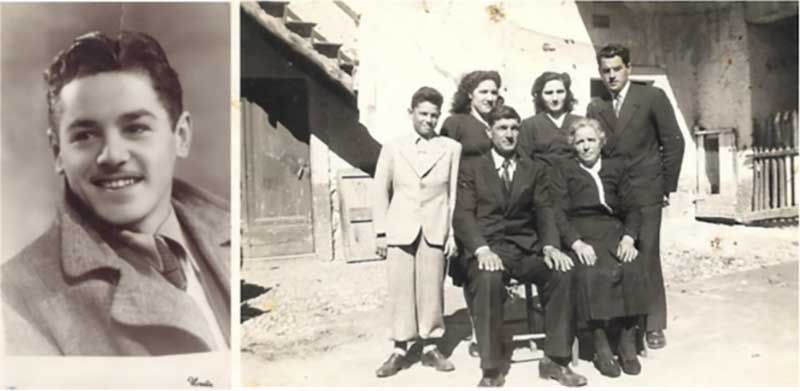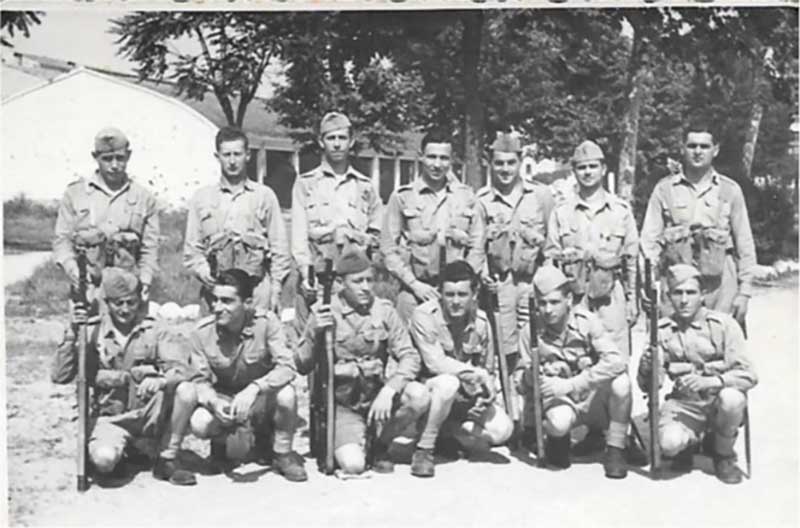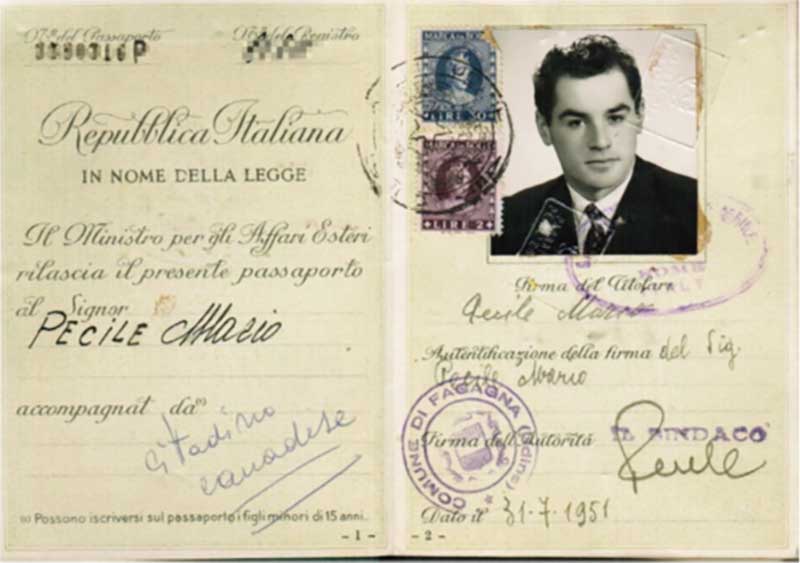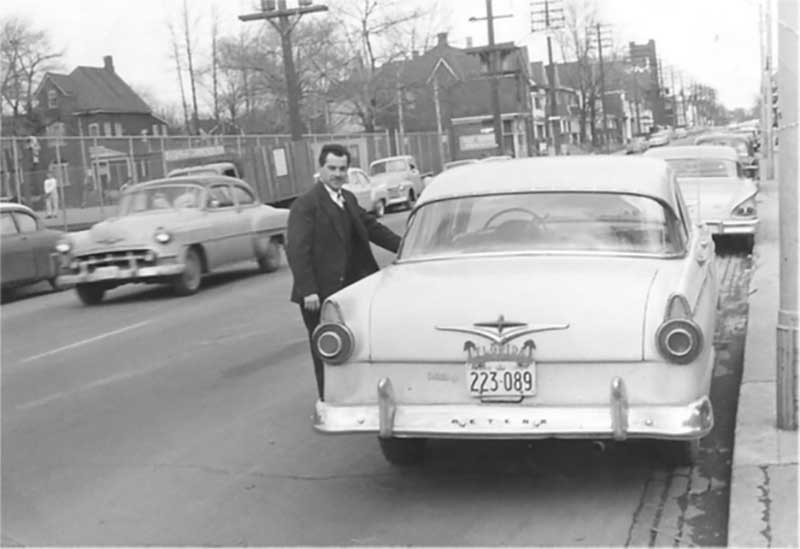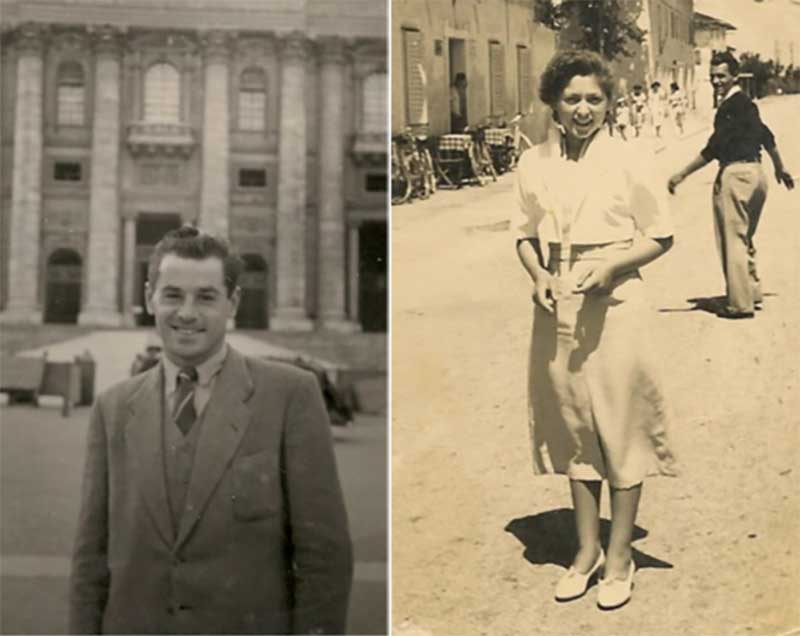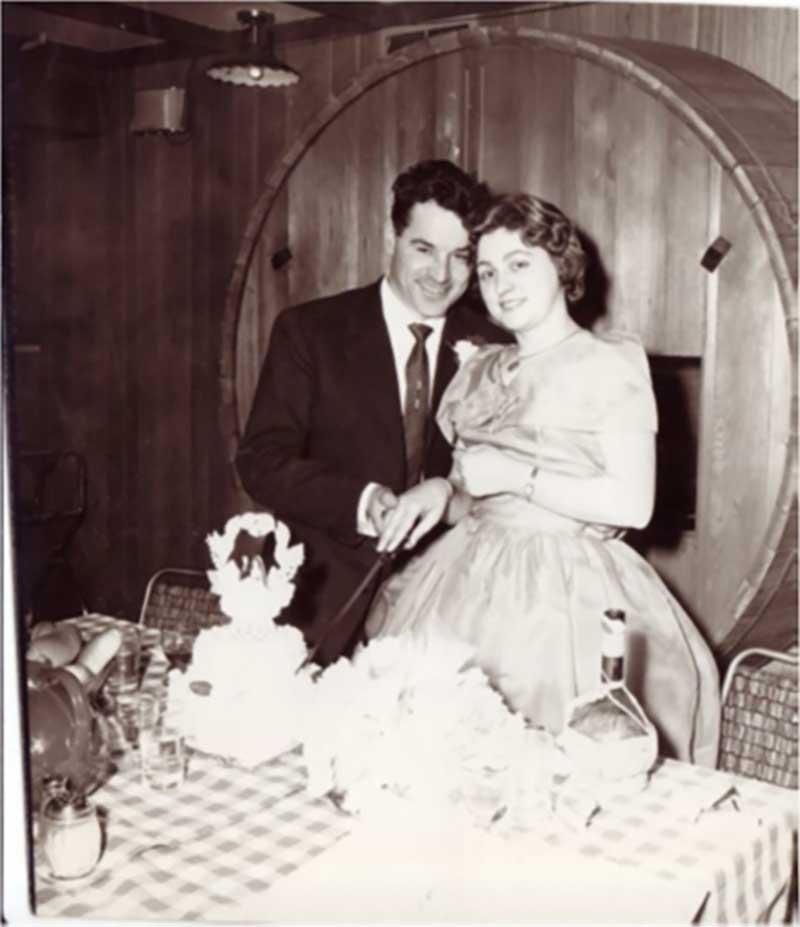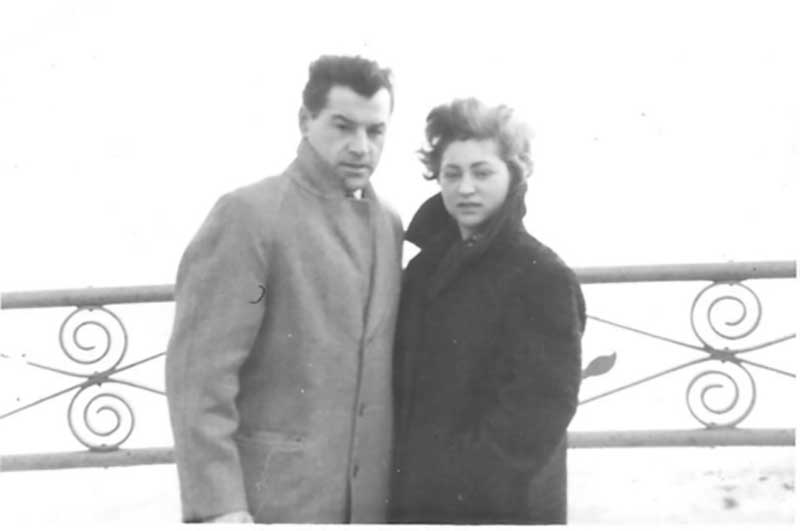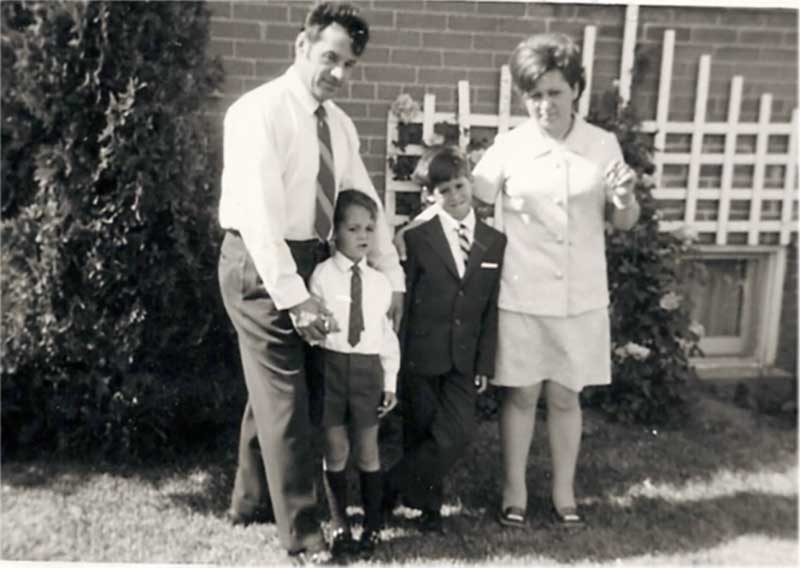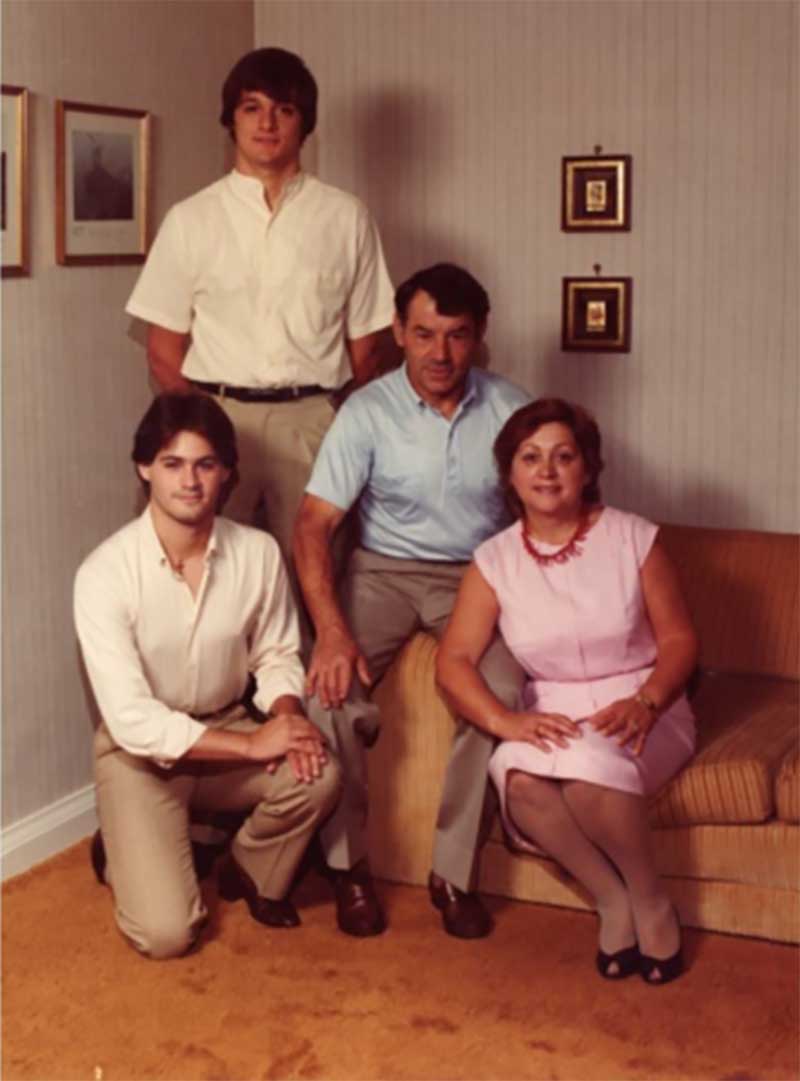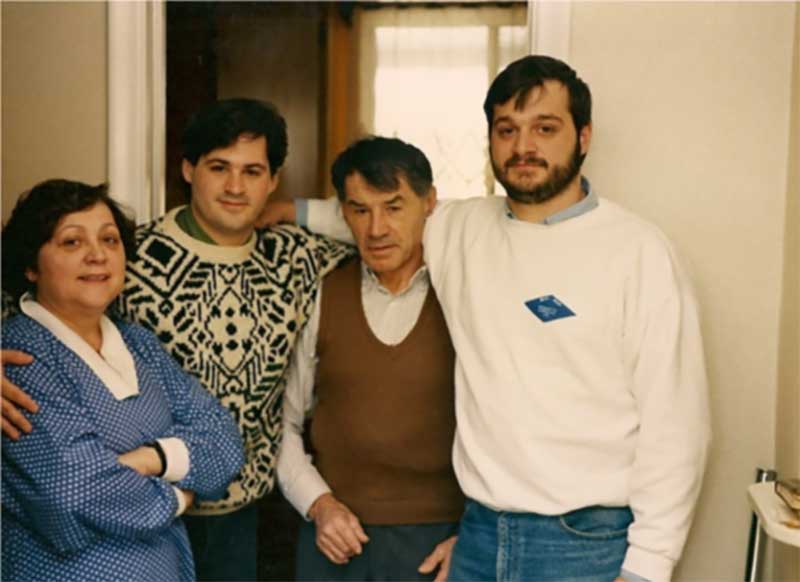Sobey Wall of Honour
Column
199
Row
26
Alumni Type: Immigrant
Country of Origin: Italy
Ship Name: MS Vulcania
Port of Entry: Halifax
Date of Arrival: Monday, December 24, 1951
Age on Arrival: 24
Mario Pecile was born in September of 1927, in Fagagna, a small town in the Friuli- Venezia-Giulia region, in northeast Italy. He is the second of four children and the eldest son of Fabio Pecile and Celeste Lizzi.
Like many families found themselves at that time, Mario’s family was not well off but owned several small farming plots around the town and surrounding area. They lived off the barter system - what produce they grew that was not used to feed the family or livestock was sold to local mills as payment for services rendered. As Mario was the eldest son, he was expected to earn money to help support the family, so he would also work on farms of other families, being paid with whatever these families could afford. He started this at a very young age.
When Mario was 19 years old, he completed his mandatory one-year military service, following the end of WWII. At 20 years old, Mario went to Switzerland to work on a pig farm for a year, earning enough money to send back to his family for his sisters’ dowries, as both were engaged to be married. Mario then returned to Italy where he continued to work his family’s plots as well as other farms, earning what he could, for several years, to help support his family.
In 1951, after working local farms for years and Europe still healing from WWII, work opportunities became scarce. Mario decided to emigrate to Canada, in hopes of finding new and better opportunities to support his family. He borrowed money from his cousin, Attillio Pecile, who lived in New York, USA at the time, for the voyage to Canada. His emigration was sponsored by his uncle Isidoro Lizzi, who lived in Timmins, Ontario at the time, at the request of Attillio.
In November of that year Mario went to Rome to obtain his visa, where he also passed his physical, from the Canadian Department of National Health and Welfare. In December he set out on the MS Vulcania for the 10-day trip from Genoa, Italy to Halifax, Canada, where he disembarked at Pier 21.
Mario entered Canada on December 24, 1951, where he was met by his cousin Attillio who had traveled from New York, by train, to accompany Mario on his trip to Timmins to meet his uncle Isidoro. Attillio accompanied Mario on the train so that he had someone who he could talk to as well as help out with English.
The train trip from Halifax to Timmins was about two days with train changes in Montreal, Ottawa and North Bay. The trains were dirty and cold, due to the fact that many passengers smoked and therefore needed to open the windows, letting in the cold December air.
Mario and Attillio arrived in Timmins late on Christmas day; Uncle Isidoro sent Mario to stay at the local boarding house that he had secured for him. A family friend in town found Mario a job at the local gold mine. Most immigrants arriving in Canada those days, lacking higher education and skillsets, were typically steered towards jobs as labourers in mines, shipyards, for the railroads, etc.
All mine employees were required to pay for their own uniforms and safety equipment. As Mario arrived with little money, he could not pay for these, so Mario’s uncle loaned him the $90 required. Once he started earning enough consistent pay, he began repaying his uncle and cousin, as well as sending money back to his family in Italy, to help support them.
In the boarding house, Mario was roommates with Mario Chiarvesio, his second cousin related through their maternal grandfathers, who had emigrated from Fagagna two months earlier. They both worked in the gold mines, but on opposite shifts and never worked together. The mine offered free English lessons. The two cousins took advantage of this, when their schedules allowed it.
After working in the mines for a year the two cousins traveled to Sault Ste. Marie to look for better work. Working in the mines was not something either man saw themselves doing long term. Unable to find any work there they returned to Timmins and resumed working in the mines, until the miner’s union went on strike a year later.
As both men still needed to make money for their families back home and the strike interfered with those plans, they decided to go south to find work. A friend in town told them that a local business owner, who lived in St. Catherines, was returning home after dealing with some issues in Timmins and they should speak to him to see if they could get a ride. They did and, for a fee of $5 each, traveled to St. Catherines. They began working for the sewer company but that too was short lived.
Both cousins decided that they needed a car and so they needed to get their drivers licences. One weekend they went to a local gas station to obtain their driver’s licenses. They had to drive around the block with the attendant. They then purchased a used car for $130.
Mario’s cousin, through an acquaintance he made in St. Catherines, eventually found work in Hamilton, as a tile setter. Mario decided to go to Toronto to try his luck. As they both could not continue co-owning the car Mario paid out his cousin and went to Toronto.
Unable to find steady work in Toronto, Mario asked his cousin Attillio in New York if he could help him find work there. Attillio agreed to help him, and Mario traveled to New York and began working on the docks. Unfortunately, with no US work visa Mario returned to Toronto, just two weeks after arriving in New York.
Upon returning to Toronto, he found work in construction, working as a tile setter’s apprentice. Even though over time the firm he worked for changed ownership and their name, Mario worked for them for the next three and half decades, until he changed to another firm a couple of years before he became ill. Construction work is not consistent or always local, and so, over the years, Mario traveled around Ontario, and even in the Maritimes, for work.
Encouraged by his brother’s success, Mario’s younger brother came to Canada at 18 years old, to stake his claim and help support the family.
While in Toronto, roughly 1956, Mario obtained his Canadian citizenship.
In 1959 Mario traveled back to Italy for the first time since emigrating to Canada. While at a local bar he met Ariella Milanese. She was a friend and neighbour of Mario’s oldest sister Clelia and her husband, Roberto. Ariella would sometimes also work at Roberto’s tailor shop. The two spent a year secretly sending each other letters.
In late November of 1960 Ariella obtained a temporary Canadian visa to marry Mario. She flew from Milan, Italy to Toronto, Ontario, with an unplanned layover in Rome, Italy and a connection in New York, USA. The two had a month to get married before Ariella would be sent back to Italy. Eleven days after arriving in Canada, the two married on December 10, 1960.
For two years, Mario and Ariella rented a flat on McRoberts Avenue in Toronto’s Little Italy, just up the street from Mario Chiarvesio, who had moved to Toronto three year earlier, and his new wife of five months, Nives. The two families became life long friends.
In January of 1962, Stefano, their first son, was born. In October of that year, Mario and Ariella bought their first home, a small bungalow in North York, for $15,000. In June of 1965, Robert, their second son was born.
In his late 50s, Mario began exhibiting forgetful behaviour and seemed to be confused about simple things. This became progressively worse over time, and he had to stop working.
He went to a specialist, to see what was wrong. He was diagnosed with early onset Alzheimer’s in 1988, at the age of 61.
Ariella and Robert did what they could to take care of him at home but when things became too much, the family decided to admit him to a nursing home, where he could receive 24 hr supervision and proper care. He spent the rest of his life in a nursing home, with daily visits from his wife, regular visits from his family, extended family, and friends and where he met his first grandchild.
In May 1995, Mario passed away. He lives on in his two sons and three grandchildren.
